Titanic survivor: Charles Joughin’s Tale from a Sinking Ship
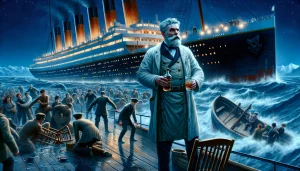 You’re standing on the deck of a sinking ship, the cold Atlantic wind whipping around you, chaos unfolding everywhere. This was the reality for Titanic survivor, Charles Joughin, Titanic’s chief baker, who faced the disaster with remarkable courage and a flask of whiskey.
You’re standing on the deck of a sinking ship, the cold Atlantic wind whipping around you, chaos unfolding everywhere. This was the reality for Titanic survivor, Charles Joughin, Titanic’s chief baker, who faced the disaster with remarkable courage and a flask of whiskey.
The Titanic, a symbol of human ambition and tragic hubris, was also a floating microcosm of early 20th-century society. Among its many stories of despair and survival, the tale of Charles Joughin, the ship’s chief baker and a Titanic survivor, stands out for its uniqueness and human spirit. This post explores Joughin’s experience during the Titanic’s final hours, reflecting on the stark social distinctions that characterised the lives of the crew and passengers alike.
Life on Board for the Crew
Charles Joughin served as the chief baker aboard the Titanic, overseeing a large staff in the ship’s bakery. Known for his robust personality, Joughin’s daily routine involved managing the preparation of hundreds of loaves of bread and other baked goods necessary to feed passengers and crew. Like many of his fellow crew members, Joughin worked long hours under strict conditions, a stark contrast to the luxurious lifestyles experienced by the first-class passengers. His living quarters and social standing aboard were modest, mirroring the broader class divisions of the Edwardian era. “We were well aware of our place on the ship, always below deck and seldom seen,” Joughin once remarked about the crew’s social standing.
The Night of the Disaster
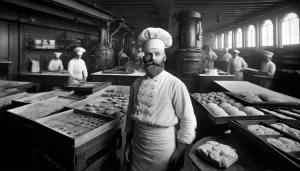 On the night of April 14, 1912, as the Titanic struck an iceberg and chaos ensued, Joughin’s actions epitomised courage and duty. According to his testimony, he took charge of his bakery crew, organizing the provision of bread for lifeboats. Remarkably, Joughin also reportedly helped load women and children into the boats, showing his concern for others’ safety over his own. His survival story is legendary; after all the lifeboats were gone, he famously continued to drink and eventually threw chairs overboard for passengers to use as flotation devices. He survived in the freezing water for hours before being rescued, a testament to both his physical resilience and mental fortitude. “If you are going to go, you might as well go comfortably,” he reportedly quipped as he sipped his liquor while the ship sank.
On the night of April 14, 1912, as the Titanic struck an iceberg and chaos ensued, Joughin’s actions epitomised courage and duty. According to his testimony, he took charge of his bakery crew, organizing the provision of bread for lifeboats. Remarkably, Joughin also reportedly helped load women and children into the boats, showing his concern for others’ safety over his own. His survival story is legendary; after all the lifeboats were gone, he famously continued to drink and eventually threw chairs overboard for passengers to use as flotation devices. He survived in the freezing water for hours before being rescued, a testament to both his physical resilience and mental fortitude. “If you are going to go, you might as well go comfortably,” he reportedly quipped as he sipped his liquor while the ship sank.
| Did You Know?
Charles Joughin, Titanic survivor, was known to state that he had not felt the cold of the Atlantic waters, possibly due to the amount of alcohol he had consumed, which he believed helped him survive until rescue. His story is often cited in discussions on accidental hypothermia and the dangers of alcohol consumption. |
Aftermath and Legacy
Surviving the disaster, Charles Joughin, Titanic’s chief baker, continued his life at sea, a testament to the resilience of many crew members who returned to maritime professions despite their traumatic experiences. Joughin’s post-Titanic life saw him serving as a baker on other ships, and during World War I, he even contributed to the war effort by working on transport ships that ferried soldiers and supplies across the Atlantic. His later years were spent in relative obscurity, though his Titanic survival tale remained a defining aspect of his legacy.
The testimony of Joughin and other crew members, like Harold Lowe who also survived, during the inquiries that followed the sinking played a critical role in reshaping maritime regulations. Key changes included enhanced lifeboat requirements, ensuring enough capacity for every passenger and crew member aboard. These inquiries also led to improved safety practices, such as mandatory lifeboat drills for passengers and crew, and the establishment of the International Ice Patrol to monitor iceberg dangers in the North Atlantic.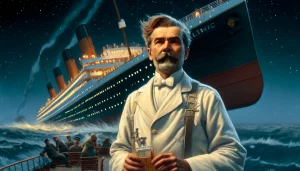
Moreover, the personal stories of the Titanic crew highlighted the stark social distinctions and often heroic sacrifices made by those in service roles. These accounts helped to shift public perceptions about the valour and dignity of service workers, contributing to gradual social reforms. Joughin’s own reflections on the event underscored not just the tragedy but also the profound human spirit of solidarity and bravery: “There was a terrible beauty to that night, the stars brighter than any I’d ever seen, and the sea like a great expanse of glass, every man and woman facing the same dark fate.”
The legacy of the Titanic’s crew, including Joughin, ultimately contributed to significant changes in maritime laws and a reevaluation of the social values of the time, emphasising the essential humanity and bravery found in all walks of life.
Charles Joughin’s remarkable survival and the roles played by various crew members on that fateful night offer a compelling glimpse into the social dynamics and human experiences aboard the Titanic. His story not only highlights the bravery and dedication of the Titanic’s crew but also serves as a poignant reminder of the social distinctions that were so pronounced at the time.
References
Testimony of Charles Joughin – British Wreck Commissioner’s Inquiry, 1912.
Eaton, John P., and Charles A. Haas. Titanic: Triumph and Tragedy, 2nd edition. W.W. Norton & Company, 1995.
Lord, Walter. A Night to Remember. Henry Holt and Company, 1955.
Lynch, Donald, and Ken Marschall. Titanic: An Illustrated History. Hyperion, 1992
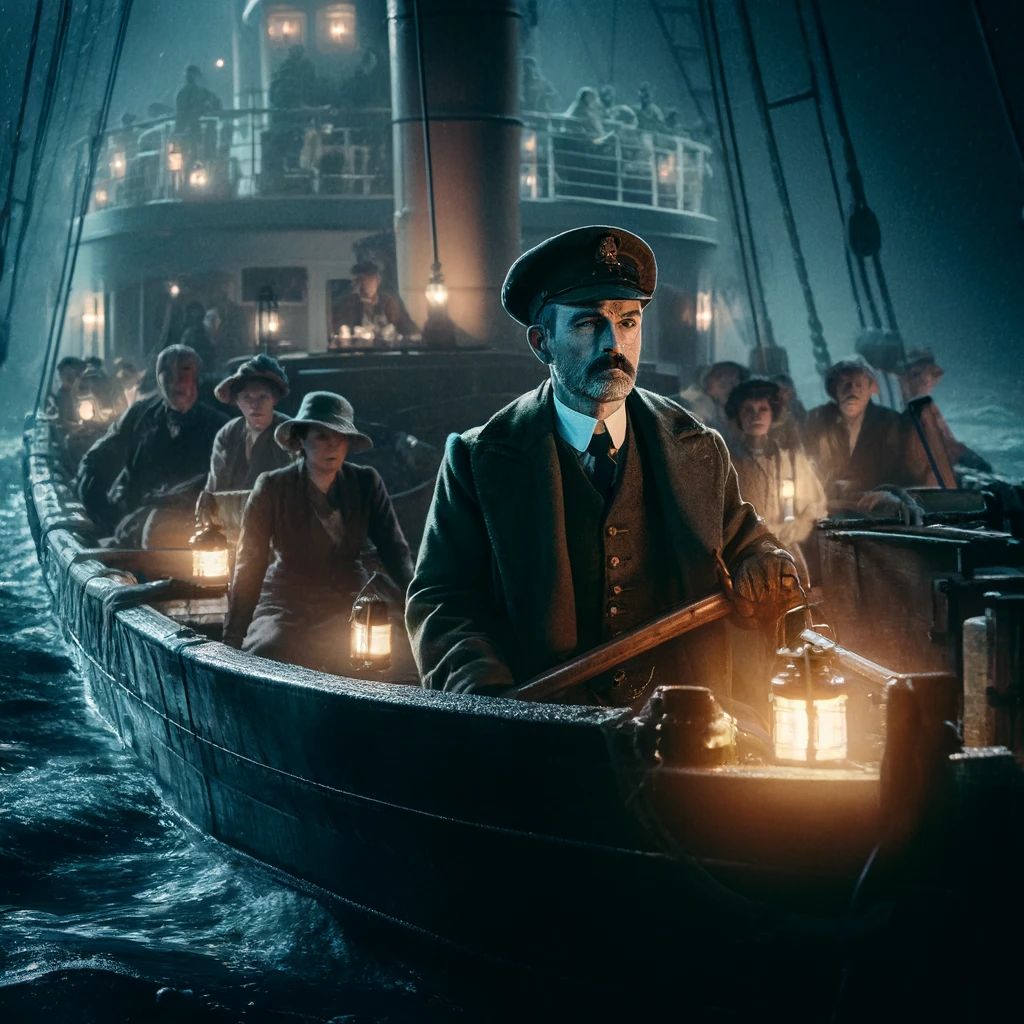
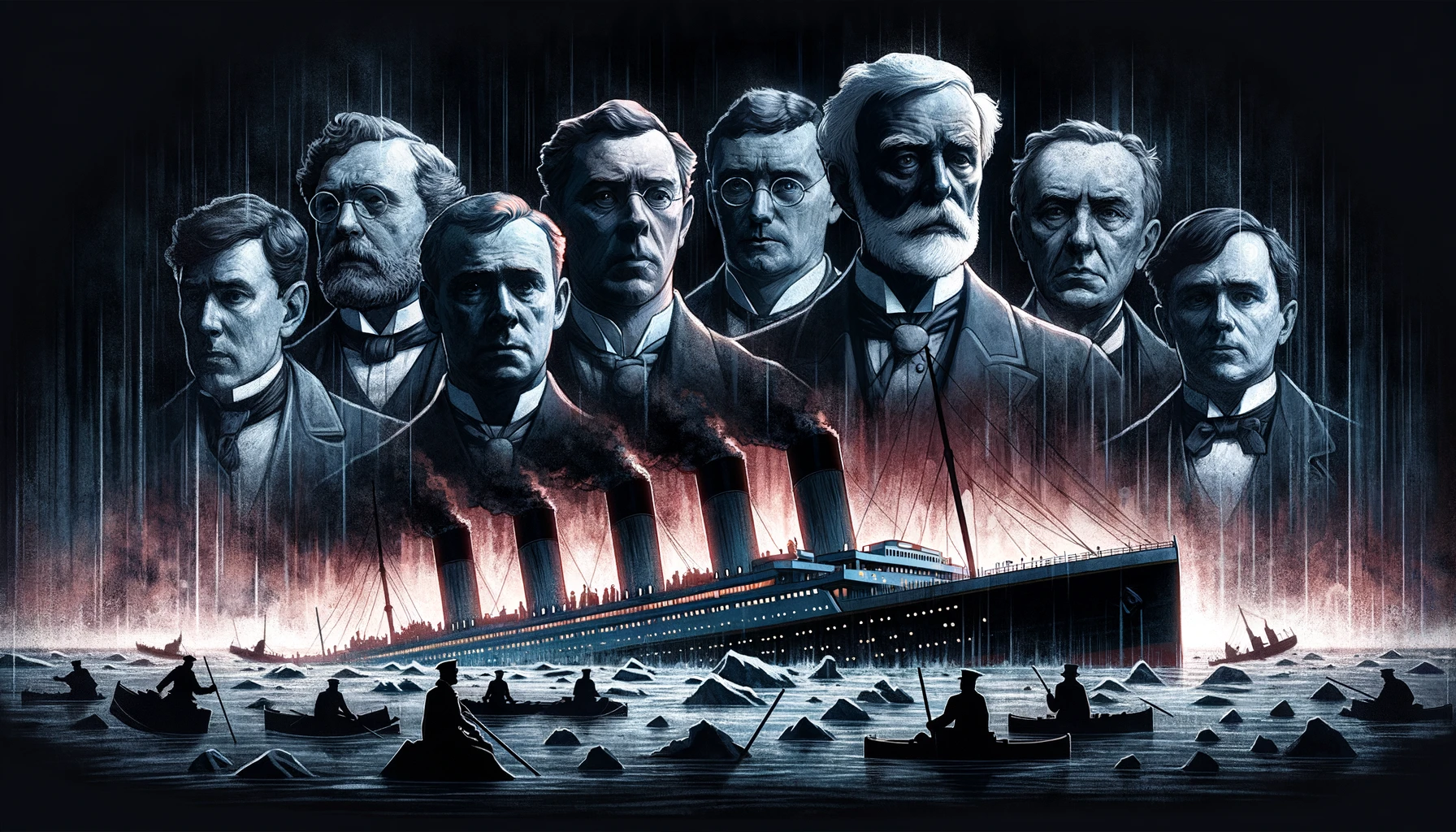
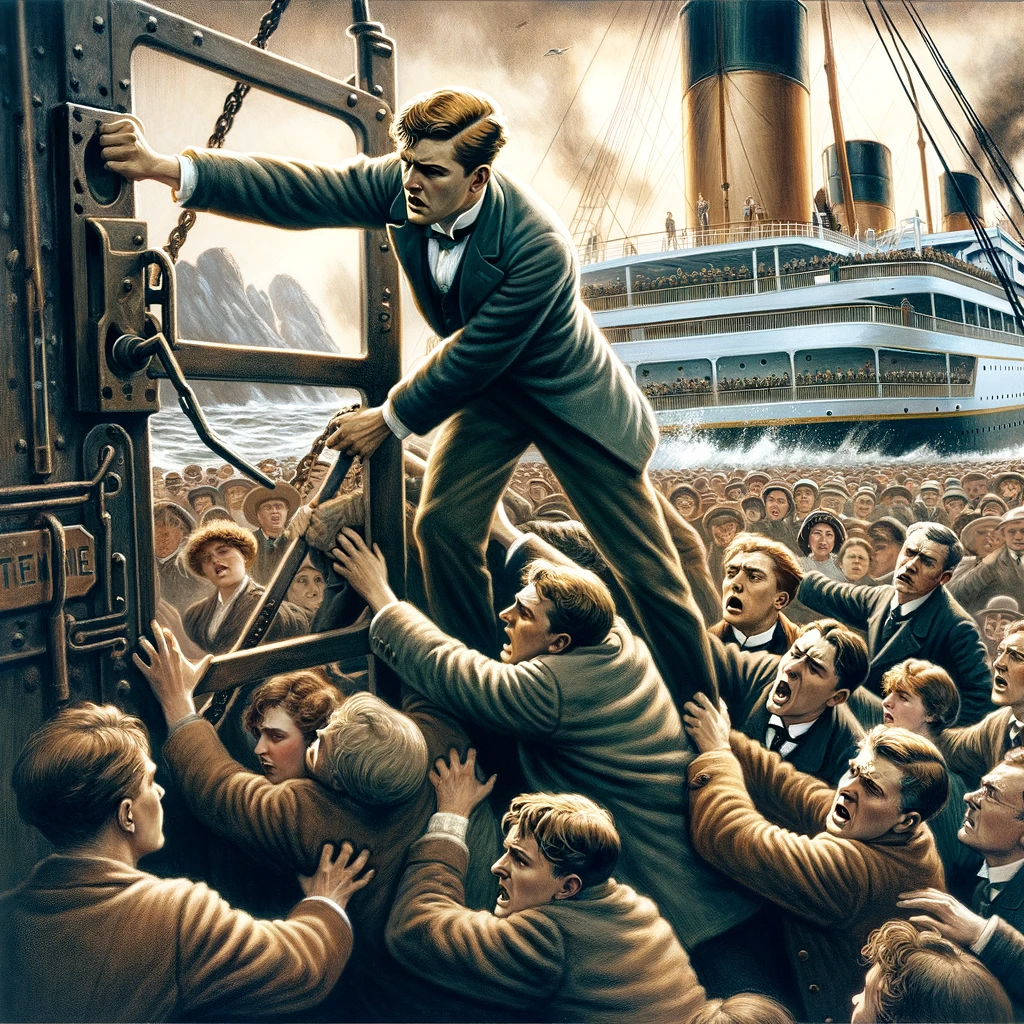
0 Comments